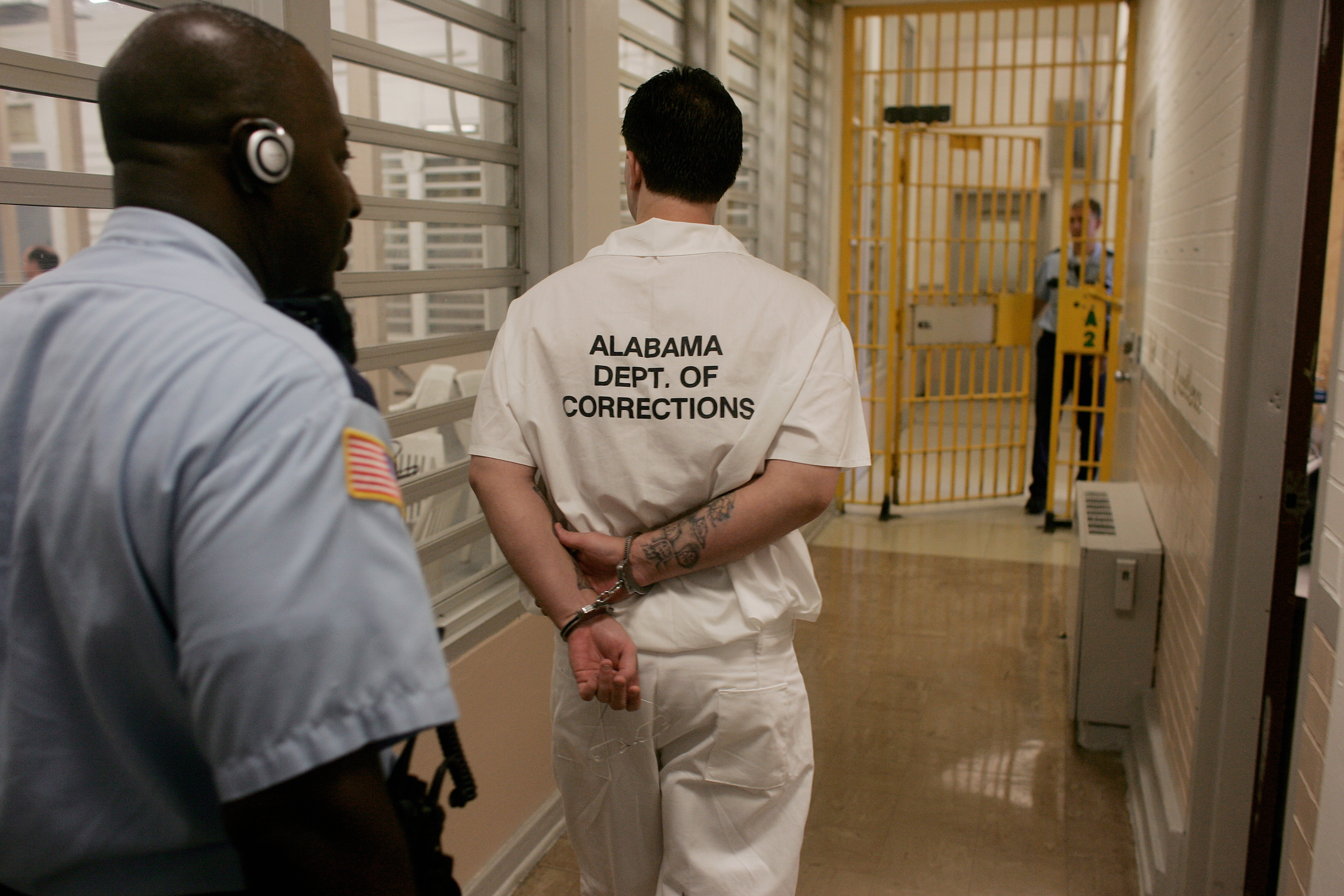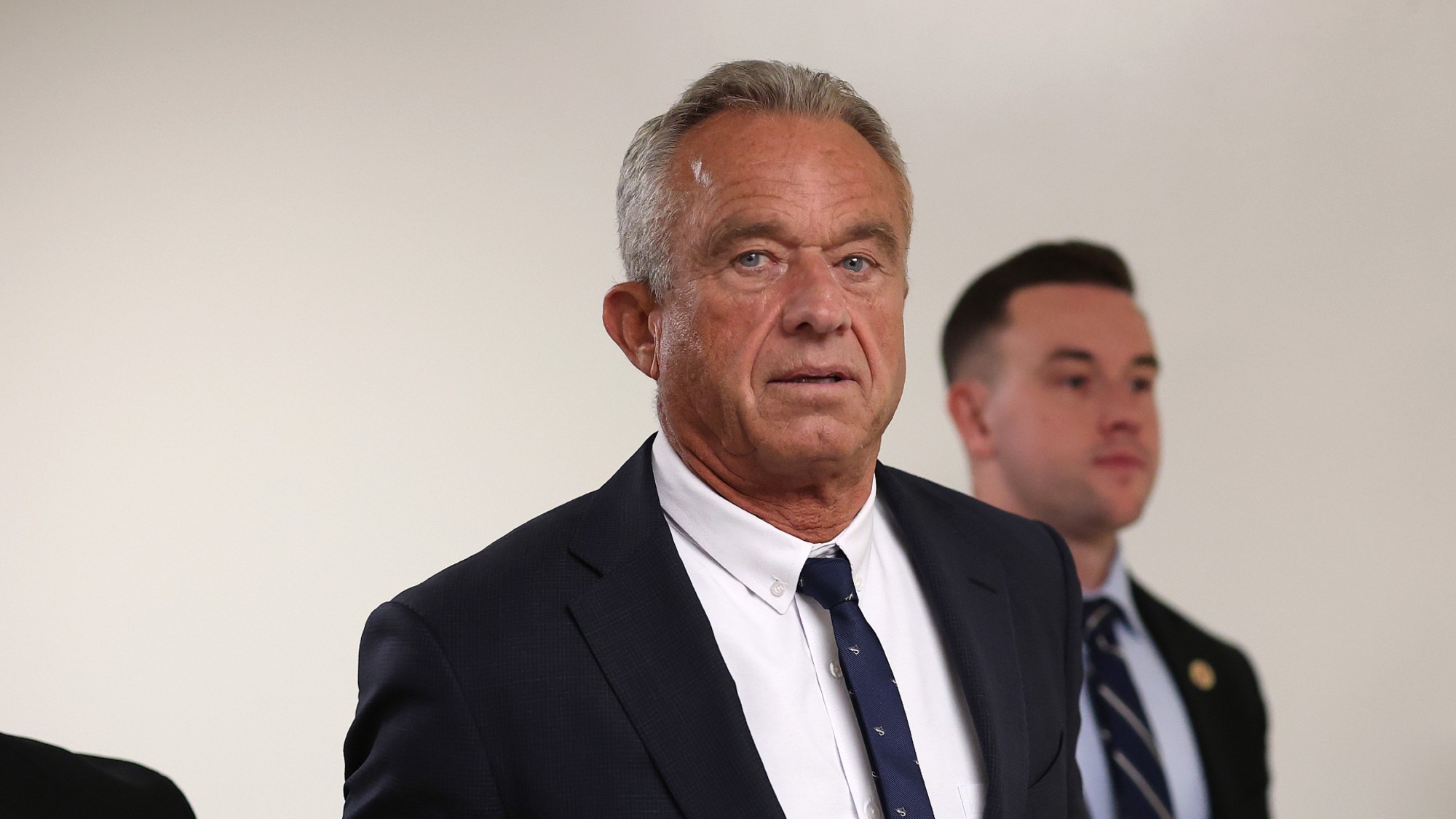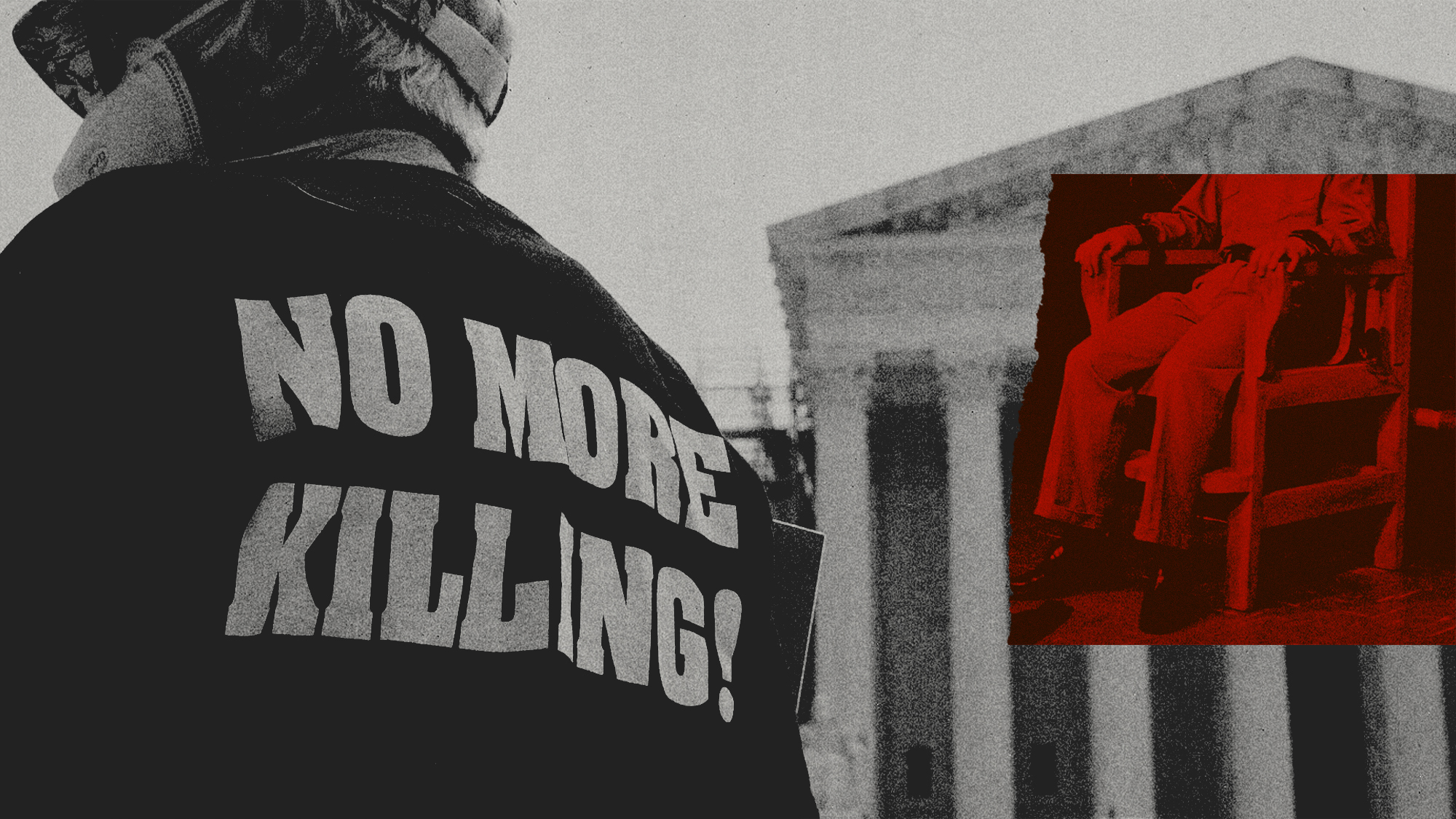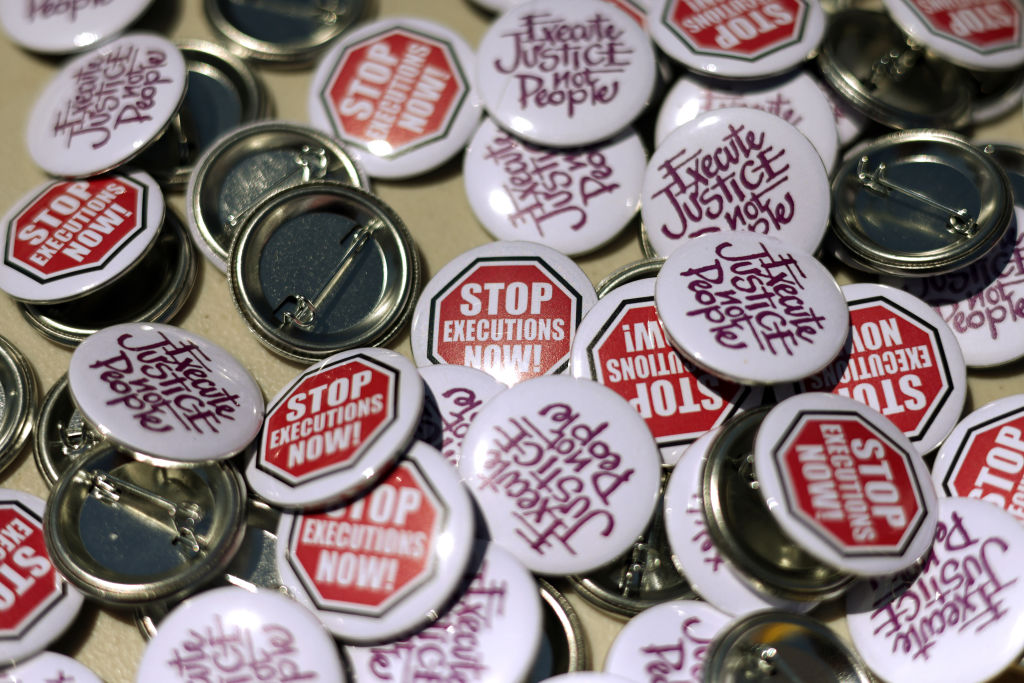Why some critics are so horrified by Alabama's new execution method
Nitrogen hypoxia has been deemed 'unacceptable' for pet euthanasia


A free daily email with the biggest news stories of the day – and the best features from TheWeek.com
You are now subscribed
Your newsletter sign-up was successful
When Alabama's Republican Gov. Kay Ivey issued a temporary moratorium on capital punishment in her state in 2022, she insisted that "for the sake of the victims and their families, we've got to get this right." Getting it right, in this case, meant addressing Alabama's record of botched executions — including that of convicted murderer Kenneth Eugene Smith, who days earlier had survived an attempt at lethal injection after officials reportedly "couldn't find a suitable vein to inject the lethal drugs."
Nearly a year later — and decades after a judge placed him on death row, overruling a jury decision to sentence Smith to life in prison — Alabama officials have requested a new execution date, when they plan to eschew lethal injection and become the first state to kill a prisoner via nitrogen hypoxia.
"It is a travesty that Kenneth Smith has been able to avoid his death sentence for nearly 35 years," Alabama Attorney General Steve Marshall said in a statement. But suffocating Smith to death by forcing him to breathe nitrogen instead of oxygen has raised serious questions from human rights observers and death penalty researchers, who allege the relatively untested practice is cruel and inhumane.
The Week
Escape your echo chamber. Get the facts behind the news, plus analysis from multiple perspectives.

Sign up for The Week's Free Newsletters
From our morning news briefing to a weekly Good News Newsletter, get the best of The Week delivered directly to your inbox.
From our morning news briefing to a weekly Good News Newsletter, get the best of The Week delivered directly to your inbox.
'Unacceptable for other mammals'
Advocates for nitrogen hypoxia argue it "will quickly render the subject unconscious, with death ensuing within minutes," Columbia University law professor Bernard Harcourt wrote in The New York Times, cautioning that "there are a lot of things that could go wrong" such as ill-fitting masks that, by letting oxygen in, could prolong death or even lead to long term brain damage rather than killing the victim.
"The entire proposal for nitrogen gas was the product of a 14-page report" made by Criminal Justice professor Michael Copeland of Oklahoma's East Central University, explained University of Richmond law professor and frequent capital punishment commentator Corinna Barrett Lain to Scientific American in 2022. "He’s not a doctor. He doesn’t have any medical training. He’s not a scientist. But he knew one of the legislators" who ultimately recommended the method. Despite arguments from proponents that "nitrogen gas inhalation would cause a death that would be peaceful and not cruel,” Emory University anesthesiology professor Joel Zivot added, "there’s no evidence for any of that.” In fact, the dangers Harcourt described were referenced by Justice Brett Kavanaugh when the Supreme Court "denied a Missouri inmate's request to be executed by the method in 2019," according to NPR.
Indeed, as Harcourt also pointed out, the scientific evidence that does exist on nitrogen hypoxia is less than reassuring; the American Veterinary Medical Association's 2020 euthanasia guidelines explicitly state that outside of chickens and turkey, the use of nitrogen is "unacceptable for other mammals" and "create an anoxic environment that is distressing for some species."
'Vague, sloppy, dangerous and unjustifiably deficient'
As the first state in the nation to move forward with a nitrogen hypoxia execution, Alabama is also the first state to establish and publish official protocols for conducting the procedure. These heavily redacted protocols detail the sequence and choreography of the planned execution in the weeks leading up to the event, as well as through the inmate's death. Per the document, prison officials are tasked with inspecting the equipment, including the mask and its placement on the prisoner's face, and are instructed to leave the nitrogen gas flowing for fifteen minutes, or for five minutes after the patient has flatlined on an EKG.
A free daily email with the biggest news stories of the day – and the best features from TheWeek.com
The protocols, as written, force one to "only speculate" about how the actual procedure will occur, execution researcher and Fordham University law professor Deborah Denno told The Guardian. In particular, Denno focused on the prescriptive rules for placing and maintaining the mask on the prisoner as "especially puzzling," asking "what if the inmate tries to take it off, immediately or during the procedure?" — a contingent not addressed in the document. The protocol is "vague, sloppy, dangerous and unjustifiably deficient" Denno proclaimed, adding that the redactions make it "all the more incomprehensible."
Former Alabama State Sen. Trip Pittman, who initially proposed using nitrogen for executions, defended the procedure to The Associated Press, insisting "it’s readily available. It’s 78% of the air we breathe, and it will be a lot more humane to carry out a death sentence."
Rafi Schwartz has worked as a politics writer at The Week since 2022, where he covers elections, Congress and the White House. He was previously a contributing writer with Mic focusing largely on politics, a senior writer with Splinter News, a staff writer for Fusion's news lab, and the managing editor of Heeb Magazine, a Jewish life and culture publication. Rafi's work has appeared in Rolling Stone, GOOD and The Forward, among others.
-
 How the FCC’s ‘equal time’ rule works
How the FCC’s ‘equal time’ rule worksIn the Spotlight The law is at the heart of the Colbert-CBS conflict
-
 What is the endgame in the DHS shutdown?
What is the endgame in the DHS shutdown?Today’s Big Question Democrats want to rein in ICE’s immigration crackdown
-
 ‘Poor time management isn’t just an inconvenience’
‘Poor time management isn’t just an inconvenience’Instant Opinion Opinion, comment and editorials of the day
-
 Sheikh Hasina: why ousted Bangladesh PM has been sentenced to death
Sheikh Hasina: why ousted Bangladesh PM has been sentenced to deathThe Explainer The country’s longest-serving leader spearheaded a ‘ruthless, state-led crackdown’ of protestors in 2024, and faces extradition from India
-
 Bondi seeks death penalty for Luigi Mangione
Bondi seeks death penalty for Luigi MangioneSpeed Read Mangione was charged with fatally shooting UnitedHealthcare CEO Brian Thompson last year
-
 'Do we really need another mountain named McKinley?'
'Do we really need another mountain named McKinley?'Instant Opinion Opinion, comment and editorials of the day
-
 'Most troubling is his long record of anti-vaccine advocacy'
'Most troubling is his long record of anti-vaccine advocacy'Instant Opinion Opinion, comment and editorials of the day
-
 Biden commutes most federal death sentences
Biden commutes most federal death sentencesSpeed Read The president downgraded the punishment of 37 of 40 prisoners on death row to life in prison without parole
-
 Biden sets new clemency record, hints at more
Biden sets new clemency record, hints at moreSpeed Read President Joe Biden commuted a record 1,499 sentences and pardoned 39 others convicted of nonviolent crimes
-
 Will Biden clear out death row before leaving office?
Will Biden clear out death row before leaving office?Today's Big Question Trump could oversee a 'wave of executions' otherwise
-
 'Is the death penalty racist? Of course it is.'
'Is the death penalty racist? Of course it is.'Instant Opinion Opinion, comment and editorials of the day
